Broken Alliance in Jakarta’s Election
Ridwan Kamil should have realized from the start that the parties supporting him were not being sincere. The people will lose out.
maaf email atau password anda salah

Ridwan Kamil should have realized from the start that the parties supporting him were not being sincere. The people will lose out.
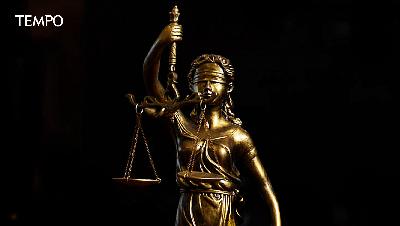
With the Supreme Court’s judicial mafia, when one branch is lopped off, another 10 grow in its place. It needs to be comprehensively cleaned up.

The Supreme Court dismissed three judges suspected of accepting bribes in the Ronald Tannur case. This adversely impacts efforts to improve the judiciary.
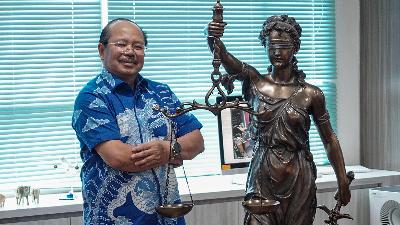
Judicial Commission Chair Amzulian Rifai on the corruption in judicial institution involving judges.
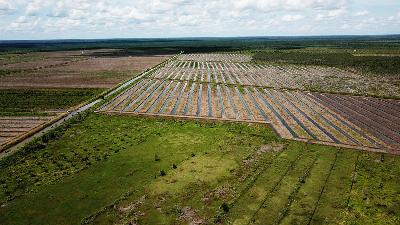
The food estate program, or rice field creation initiative in Central Kalimantan, was neglected and instead converted into oil palm plantations owned by private companies.

Ridwan Kamil’s electability remains stagnant in the Jakarta regional head election. His supporting parties are not actively campaigning for him, leaving him hoping for support from Prabowo and Jokowi.
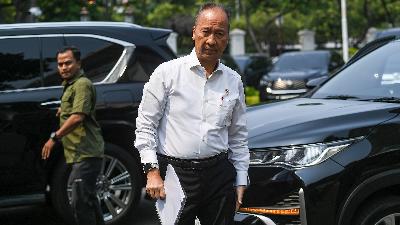
Interviews with Industry Minister Agus Gumiwang Kartasasmita and Sritex President Commissioner Iwan Setiawan Lukminto on the company’s bailout.
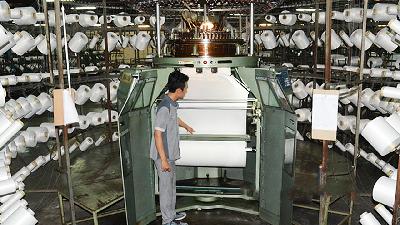
After Sritex, other major textile companies are also collapsing. Incentives and support are needed to curb imported goods.

Capital outflow becomes increasingly clear at the outset of Prabowo’s administration. The large cabinet undermines investors’ confidence.

The obligation to obtain halal certification leads to higher economic costs and corruption. Labeling products that are non-halal would be more efficient.

Jokowi’s son-in-law, Bobby Nasution is caught up in alleged bribery involving a mining permit in North Maluku. He is accused of selling his influence.
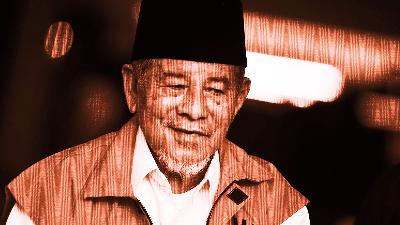
The term “Medan Block” emerged during the trial of former North Maluku Governor, Abdul Gani Kasuba. Medan Block is believed to refer to pre-allocated nickel mining concessions in Halmahera.
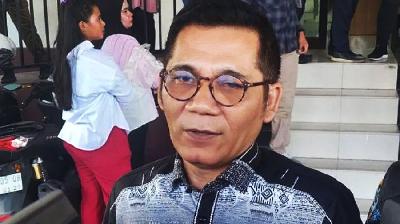
Former North Maluku Governor Abdul Gani Kasuba acknowledged meeting with Bobby Nasution but claimed he gained no advantage from it.
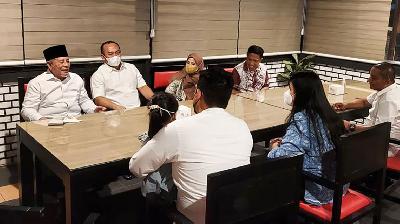
Bobby Nasution is suspected of managing the Medan Block nickel mine since 2021. He met with Abdul Gani Kasuba before becoming the Mayor of Medan.
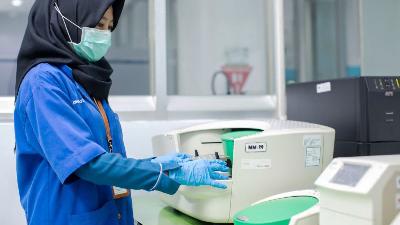
Halal certification is slow due to inadequate supporting infrastructure. It has the potential to trigger a high-cost economy.

Entrepreneurs are pressured by the mandatory halal certification regulations. The costs associated with obtaining halal labels are considered expensive, and the procedures are complicated.
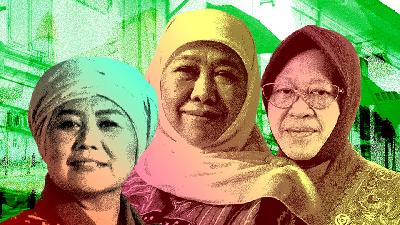
Three East Java gubernatorial candidates—Luluk, Khofifah, and Risma—talk about the competition in the 2024 regional head elections.

The new ministries and agencies established by Prabowo Subianto cannot operate immediately. Some lack office space, have tight budgets, and are short on staff. The authority of the Haj and Umrah Organizing Agency even violates the law.

The rupiah is weakening amid the power transition, with global factors also exerting heavy pressure.

Driven by corporate demand, helicopter business opportunities continue to grow. Operators are increasingly expanding their fleets.

Several Rohingya refugees successfully built their careers in various fields. They continued to work and raised awareness about the plight of displaced Rohingya refugees.
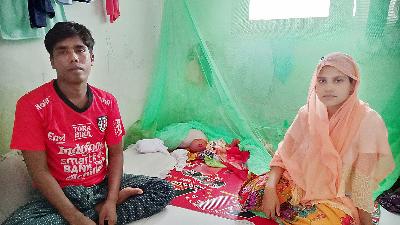
Rohingya refugees are still living in several inadequate temporary shelters in Aceh.

There are indications of problems with the IPO of Barito Renewables Energy. The stock exchange and capital markets authorities are neglecting their responsibilities.
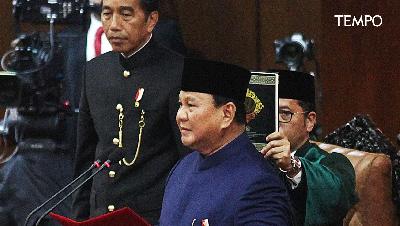
How did Prabowo Subianto decide on the composition of his cabinet? There are indications that several prospective ministers were proposed by tycoons.

Prabowo Subianto is inheriting an inefficient economy. Yet his new administration is likely to follow Jokowi’s economic model.
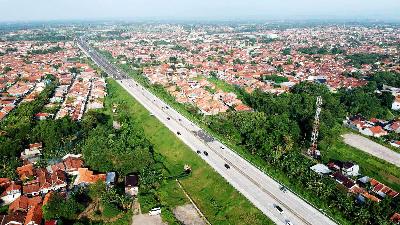
The Joko Widodo administration leaves a heavy burden for state-owned enterprises. Many projects result in big debts.
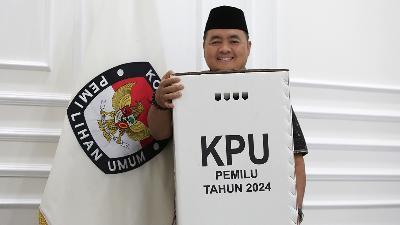
KPU Chair Mochammad Afifuddin on turbulence within his institution following the dismissal of Hasyim Asy’ari, and the Constitutional Court’s decision on the regional head elections.
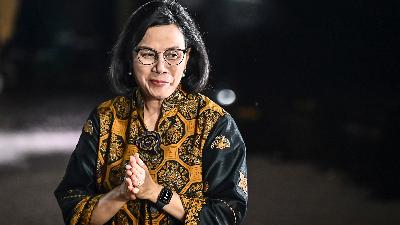
Sri Mulyani and several economic ministers from Jokowi join Prabowo’s cabinet, with encouragement from two former presidents.
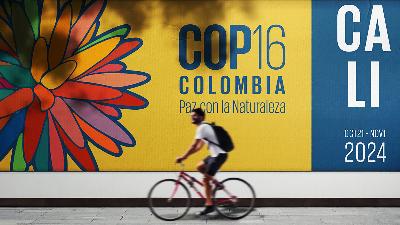
Indonesia’s delegation at COP16 CBD in Cali, Colombia, is not led by a minister. Biodiversity funding is at risk of not being agreed upon.

A reader’s letter suggests authorities seek ways for safe and efficient logistics transportation, in order to minimize traffic accidents.
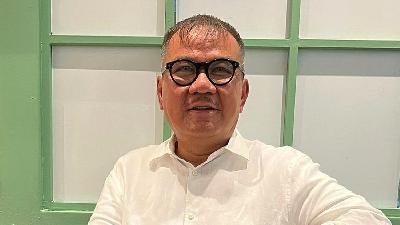
The KPK Leadership and Supervisory Board Selection Committee claimed to have followed procedures, and Jokowi reportedly did not intervene.
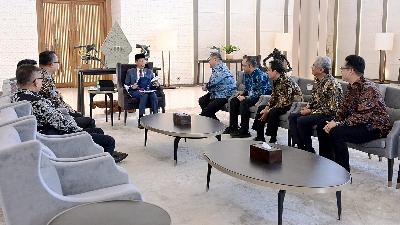
Various parties from the National Police Chief to the State Palace are accused of interfering in the KPK leadership candidates selection process. The candidates are divided into four clusters.
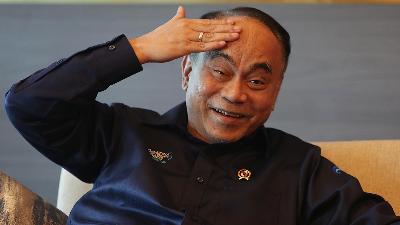
Tempo’s interview with Minister of Communication and Informatics Budi Arie Setiadi about Jokowi’s campaign before the end of his tenure.
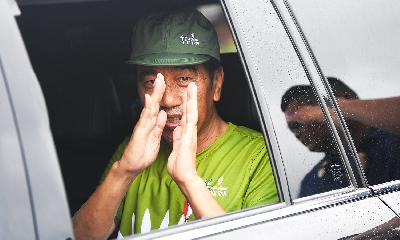
After stepping down, Jokowi will return to Solo, accompanied by his loyal supporters. He is not having a lavish farewell in order to avoid any negative sentiment.

As President Jokowi's term neared its end, instructions were given to promote the government's achievements, and billions of rupiah in contracts were offered to the media.
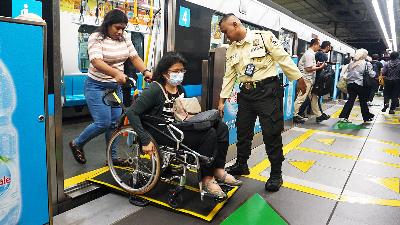
Jakarta is striving to provide inclusive transportation, but challenges remain, from funding issues to construction oversight.

Officials are all trying to avoid responsibility for illegal gold mining in protected forests. The dangers to the environment and to health are being ignored.
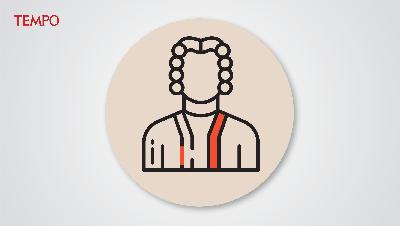
The contest for the selection of the Supreme Court Chief Justice is heating up. There are indications it is riddled with the interests of the government and tycoons.
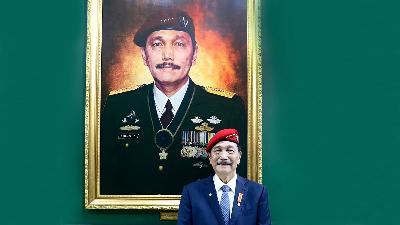
Luhut explains his close ties with Jokowi, and the plans of the president-elect Prabowo. This is his first interview with Tempo after the one on the Panama Papers eight years ago.
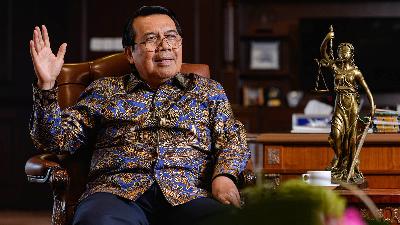
Supreme Court Chief Justice Muhammad Syarifuddin uses artificial intelligence to handle cases. Case brokers continue to be a threat.
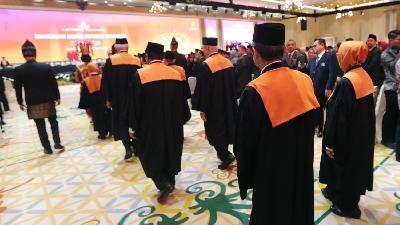
The race for the position of Chief Justice of the Supreme Court is heating up amid a flurry of allegations against certain candidates. There is suspicion of backing from business circles.

VIVA Group is facing a restructuring process under a debt payment suspension scheme and is threatened with bankruptcy. There are maneuvers to lobby creditors and reduce debt.
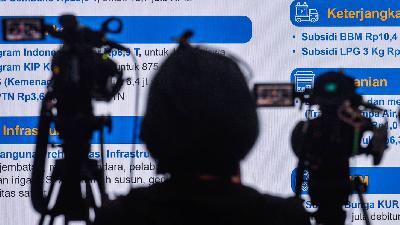
Media companies are experiencing upheaval due to the rapid changes in the business landscape. The industry is moving towards a new equilibrium.
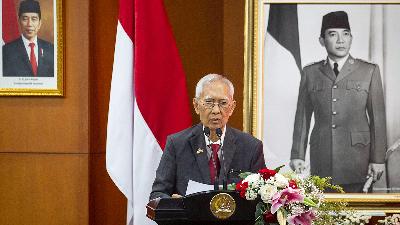
President Joko Widodo is suspected of supporting the restoration of Suharto’s name, with a possibility of being declared a national hero.
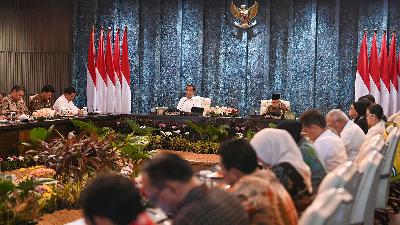
Jokowi is preparing for the incoming Prabowo-Gibran administration starting in late February 2024. He hopes that Prabowo can continue his programs.

Using a variety of pretexts, the political parties replace elected legislative candidates. This is a betrayal of the people’s choice.
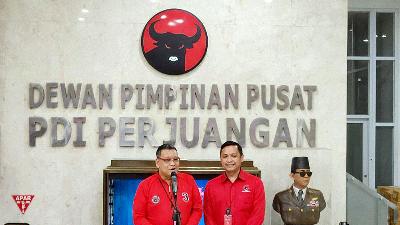
Political parties replace elected legislative members over alleged vote manipulation.

The partnership between Riau regional company and Kingswood Capital Ltd resulted in criminal charges, with two top executives now facing allegations of embezzlement.
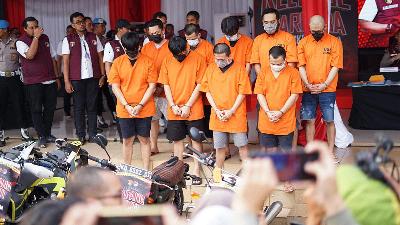
Hendra Sabarudin’s drug network distributed methamphetamine from Tarakan prison starting in 2017, allegedly aided by police and prison guards.

Egianus Kogeya quietly freed Susi Air pilot Phillip Mark Mehrtens. His hope to trade the pilot for Papua’s independence failed.
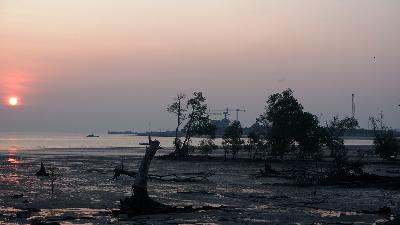
The government plans to dredge 17.6 billion cubic meters of sea sand and sediment, altering the landscape and destroying marine life.
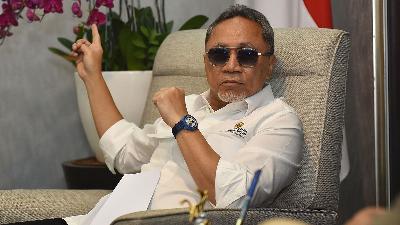
Trade Minister Zulkifli Hasan on the issues ranging from sea sand export policy to Prabowo Subianto’s bureaucratic management style.
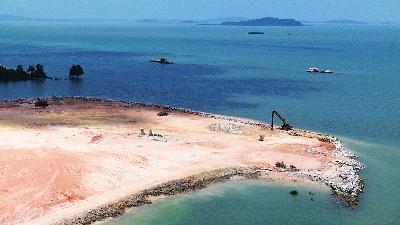
The government designated a number of areas as zones for cleaning sediment and sea sand.
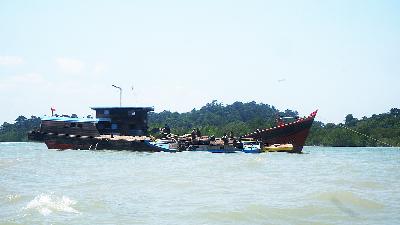
The demand for sea sand continues to increase, driven by the growth of infrastructure, construction, and the glass and solar panel industries.
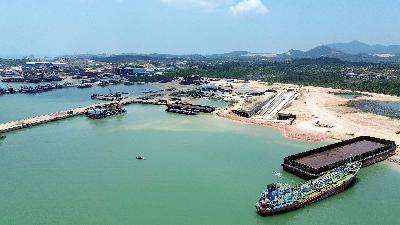
Dozens of companies are seeking permits to process marine sediment. They include businessmen, regional head candidates, and former cabinet ministers.

Indonesia is poised to fall into the middle-income trap. Only a few people enjoy the economy pie.
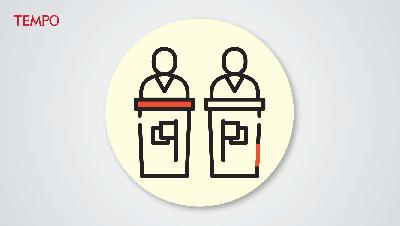
The hand of the government is apparent in Kadin’s internal conflict between Arsjad Rasjid and Anindya Bakrie. This has no effect on the public.

Prabowo Subianto is to form a cabinet comprising numerous ministers. This is made possible through a revision of the law.
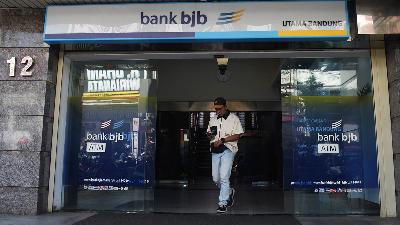
The KPK named five suspects in the Bank BJB advertising budget corruption, but it has yet to implicate high-ranking officials in the West Java Provincial Administration.
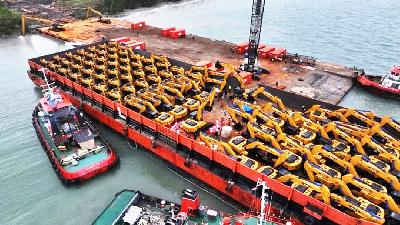
The clearing of forests for the food estate project does not yet have an environmental impact assessment. It will be issued later.
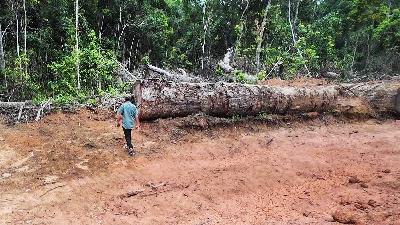
The rice paddy development program will sacrifice 1.02 million hectares of customary land in Merauke. It will also annihilate biodiversity.

Why do we still import rice from Vietnam? Is Indonesia not an agricultural country?
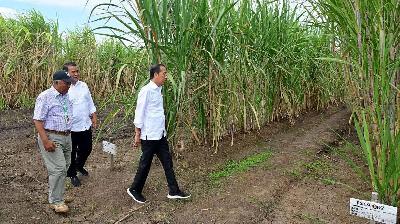
Preparing 2.9 million hectares of land under the food estate program in Merauke, South Papua, the government aims to achieve rice and sugar self-sufficiency within three to four years. Mirroring the previous failed food estate initiative.
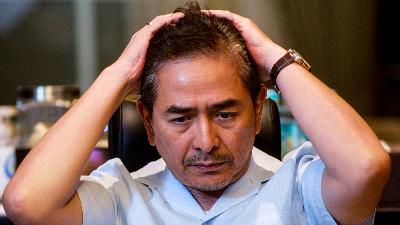
Anindya Bakrie ousted Arsjad Rasjid as the Chair of the Indonesian Chamber of Commerce and Industry (Kadin). The organization is becoming like a political party and enjoys large funds coming in from overseas.

The selection of the KPK leadership is being forced through before the end of the terms of the DPR and Jokowi. Watch out for Presidential Palace appointees.

The power wheeling scheme is important to end the monopoly in the supply of electricity. It could accelerate the energy transition.
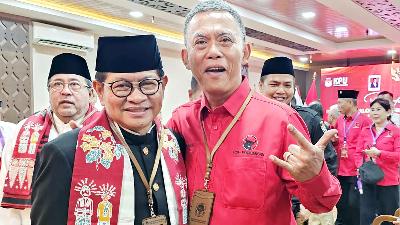
Two rivals in Jakarta’s upcoming regional elections are sharpening their winning strategies. There is a rift in the Indonesia Onward Coalition.
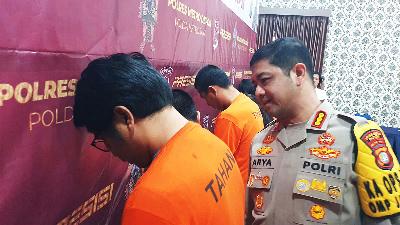
Police uncover baby trafficking syndicate operating in Java-Bali since 2023. Five babies were already sold.
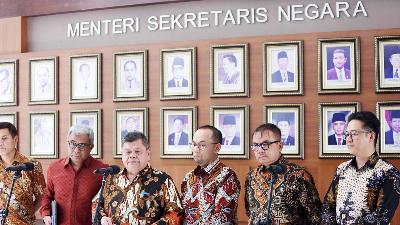
News summary on the conflict of interest of KPK leadership candidates and 44 ministries in Prabowo’s government.
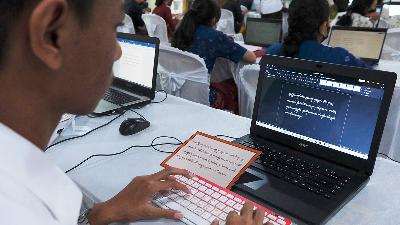
The Language Agency uses artificial intelligence to preserve endangered regional languages, starting with the creation of a vast corpus data.

The business of digital signatures and e-stamps is booming, as regulations push digital certificate providers to rake in profits.
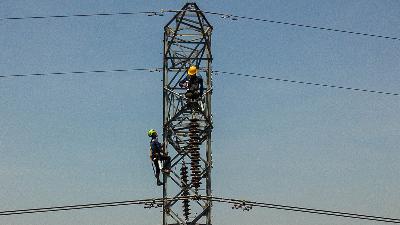
Foreign companies are urging President Joko Widodo to implement the power wheeling scheme. The private sector is pushing to hasten the energy transition.

Articles on power wheeling prevent the legislation of a New and Renewable Energy Bill. State electricity company PLN’s unique position could be left precarious.

If matters are left to those who are not expert, we are destined to face a destruction.
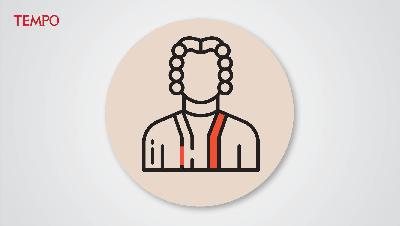
The DPR rejected all candidates for Supreme Court and ad hoc human rights justices put forward by the Judicial Commission. There needs to be transparency in the selection process.
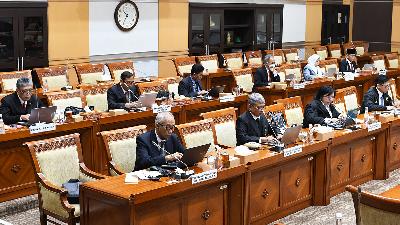
Commission III of the House of Representatives rejected all the Supreme Court judge candidates proposed by the Judicial Commission. The rejection allegedly was due to their favored candidate failed to pass.
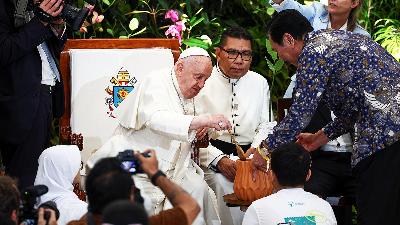
Indonesia and the Vatican enjoyed a good relationship long before the Pope’s visit. The Vatican reportedly helped Indonesia lobby the European Union.
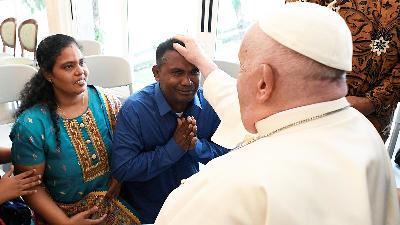
The first agenda item on Pope Francis’ visit was to meet with marginalized communities. The Pope encourages Catholic Church leaders to welcome Muslim refugees.

Pope Francis received a warm welcome on his visit to Indonesia. Appearing with simplicity, he brought a mission of inter-faith dialogue.
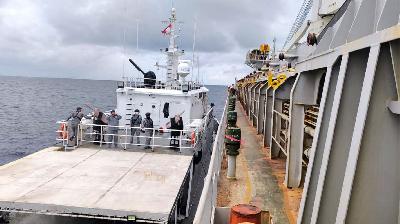
A biomass plant has the potential to clear 693,795 hectares of Gorontalo’s forest. The raw material for the wood pellets intended for export comes from deforestation.
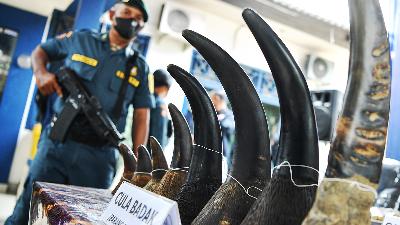
The Environment Ministry thwarted the sale of Javan rhino horns in Palembang. This is linked to a network of Ujung Kulon rhino poachers.

The free lunch program needs to be selective that the provinces with high prevalence of malnutrition should be put on the priority list.

Persis Solo attracts substantial funding since Kaesang Pangarep acquired its shares. Sponsors tend to be influenced by the prominence of the owner.
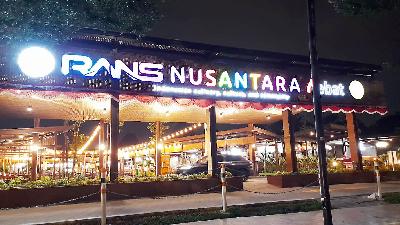
Startups owned by Gibran Rakabuming Raka and Kaesang Pangarep are flooded with venture capital injections. Assisted by a presidential advisor.

A photograph of a private jet window exposes Kaesang Pangarep and Gibran Rakabuming Raka’s connections to a network of business actors.

Optimism is brewing in the financial markets, while the real sector is signaling a slowdown. A heavy burden for the incoming president.
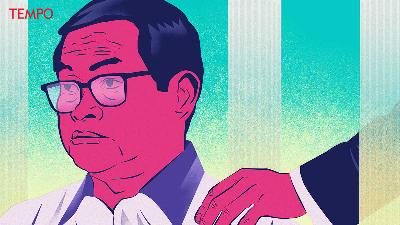
The PDI-P canceled its plan to nominate Anies Baswedan for the Jakarta gubernatorial election. Pressure came in the form of legal cases and revisions to the MD3 Law.
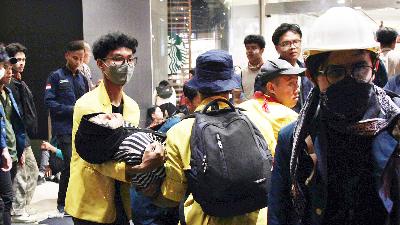
Violence broke out as police attempted to disperse a demonstration in Central Java. The use of tear gas needs evaluation.
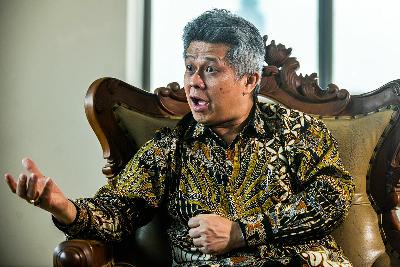
Chair of the Presidium of the Indonesian Bishops' Conference (KWI) Monsignor Antonius Subianto Bunjamin spoke about the preparations for Pope Francis’ visit.
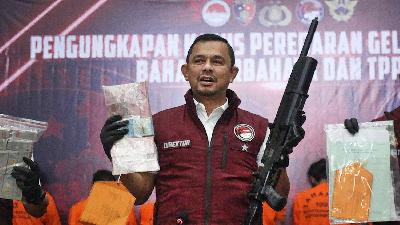
The trial of the defendants in the tin corruption case revealed the involvement of Brig. Gen. Mukti Juharsa. He evaded scrutiny from the Attorney General’s Office.

The current account deficit threatens the Indonesian economy. The value of the rupiah could fall further, triggering an economic crisis.
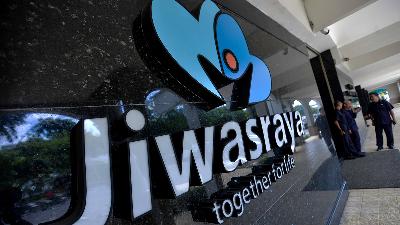
The government plans to liquidate Jiwasraya after the settlement of policyholder claims. A massive deficit still hangs over the company.
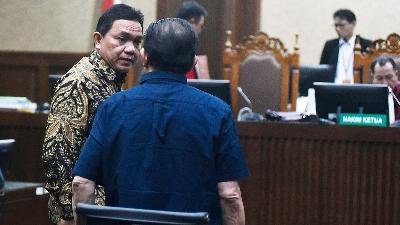
The selection process for BPK members is under scrutiny following multiple instances of its leaders being implicated in corruption cases. The selection process is deemed to be lax.

Commission XI of the House of Representatives will elect five BPK members. Several political parties are forming a coalition to support their strongest candidates.
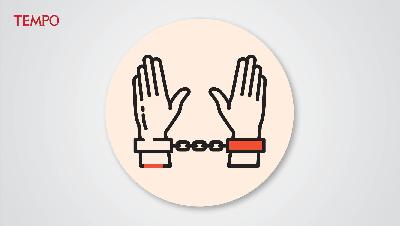
The police continue to resort to brutality to silence demonstrators. This is a violation of human rights.

Several political parties conspired to approve candidates for the Supreme Audit Agency (BPK) membership. Corrupt candidates could be selected.
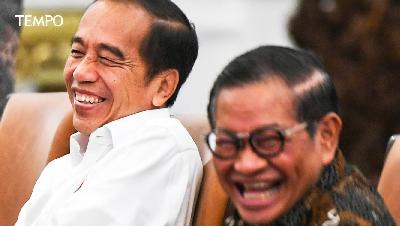
The Constitutional Court returns politics to the people. But voters will once again be spectators of a banal political circus.
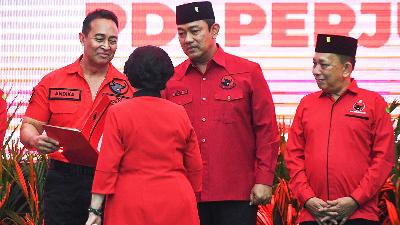
The Indonesian Democratic Party of Struggle (PDIP) strives to counter candidates supported by the Palace. It is an early projection for the 2029 General Elections.

Police act excessively in handling the demonstrations nationwide in support of the Constitutional Court decision. Where are the President and Vice President?

The transition to nuclear energy must be accelerated to meet the ever-increasing demand for electricity. It is more environmentally friendly.

Clarification from the Lake Poso customary community and the mismanagement of food.
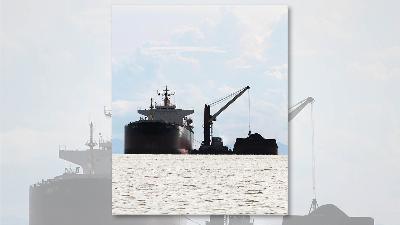
The shortage of coal for domestic power plants is the result of poor management from PLN and the government. An export ban will not solve the problem.
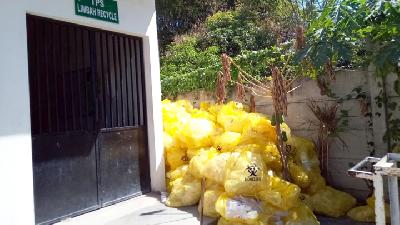
There are problems with the entire management process for hazardous and toxic waste from hospitals in East Java. It is endangering public health.

The cabinet’s mismanagement has sent the garlic price to go through the roof. The inter-ministerial coordination and the market mechanism need to be fixed.

Not many filmakers have delved into the lives of Indonesians in remote areas. But seasoned producer Mira Lesmana sees a wealth of interesting stories from the outer islands. One of Mira's films, Atambua 39 Celcius (2012) explores the culture of West Timor in East Nusa Tenggara (NTT) province, not a frequently visited area. The film uses the local Tetun dialect, which is fast disappearing. "I have this wish to preserve something before it changes or disappears," said the founder of Miles Films production company,
NTT is the background of her 2014 film, Pendekar Tongkat Emas (Knight of the Golden Rod), which was produced in Waingapu, Sumba. "I happen to be in love with NTT, a region with a unique character. I have travelled to the islands of Flores, Timor and Sumba, but I have yet to visit the smaller islands, like Sabu and Rote," said 50-year-old Mira.

The state-owned oil and gas company, Pertamina, built up a fleet of tankers during the time of Ibnu Sutowo, Pertamina's first CEO. They almost went bankrupt due to mismanagement.

The Attorney General will soon terminate the investigation into alleged corruption in the sale of two Pertamina tankers involving Laksamana Sukardi. The DPR is questioning the decision.

There may well be a soft chair in his office, but Laksamana Sukardi sits in the hot seat. This is because he appears to have the glamorous job of administering what looks like unlimited amounts of money. As the State Minister for State-Owned Enterprises (SOEs), Sukardi, 46, is not only in charge of over 130 state-run businesses, but he is also responsible for the overall performance of the Indonesian Bank Restructuring Agency (IBRA). In sum, these state-owned assests have a combined worth of nearly Rp1,500 quintillion (figure followed by 18 zeros)—as compared with the 2002 national budget, which is only worth Rp300 quintillion.

State Minister Laksamana Sukardi has the mammoth task of optimizing state-owned enterprises as well as the Indonesian Bank Restructuring Agency. In addition, he faces various obstacles, including those posed by the legislative.
Independent journalism needs public support. By subscribing to Tempo, you will contribute to our ongoing efforts to produce accurate, in-depth and reliable information. We believe that you and everyone else can make all the right decisions if you receive correct and complete information. For this reason, since its establishment on March 6, 1971, Tempo has been and will always be committed to hard-hitting investigative journalism. For the public and the Republic.